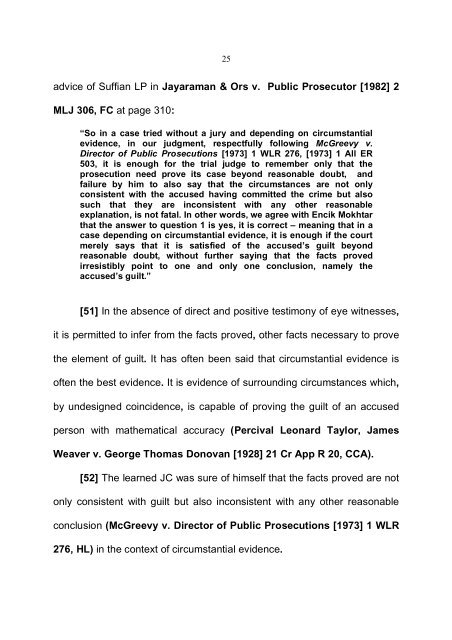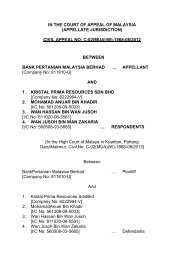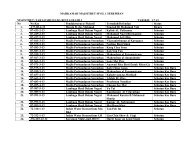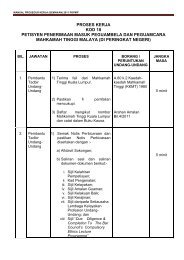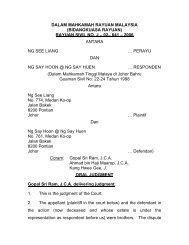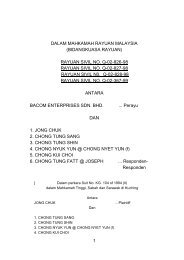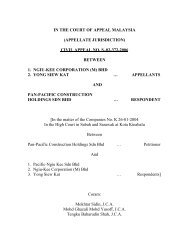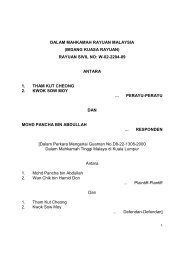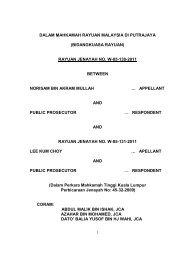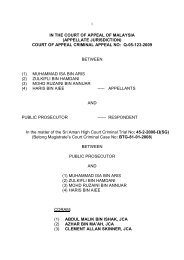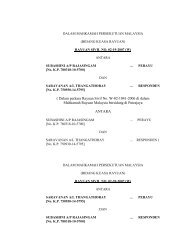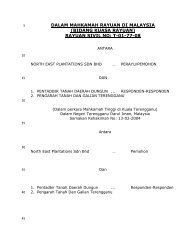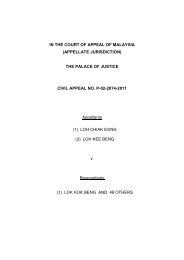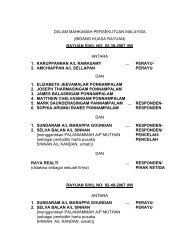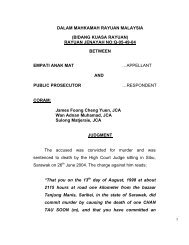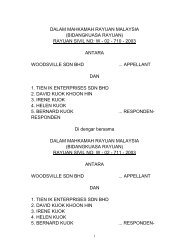DALAM MAHKAMAH RAYUAN MALAYSIA (BIDANG KUASA ...
DALAM MAHKAMAH RAYUAN MALAYSIA (BIDANG KUASA ...
DALAM MAHKAMAH RAYUAN MALAYSIA (BIDANG KUASA ...
You also want an ePaper? Increase the reach of your titles
YUMPU automatically turns print PDFs into web optimized ePapers that Google loves.
25<br />
advice of Suffian LP in Jayaraman & Ors v. Public Prosecutor [1982] 2<br />
MLJ 306, FC at page 310:<br />
“So in a case tried without a jury and depending on circumstantial<br />
evidence, in our judgment, respectfully following McGreevy v.<br />
Director of Public Prosecutions [1973] 1 WLR 276, [1973] 1 All ER<br />
503, it is enough for the trial judge to remember only that the<br />
prosecution need prove its case beyond reasonable doubt, and<br />
failure by him to also say that the circumstances are not only<br />
consistent with the accused having committed the crime but also<br />
such that they are inconsistent with any other reasonable<br />
explanation, is not fatal. In other words, we agree with Encik Mokhtar<br />
that the answer to question 1 is yes, it is correct – meaning that in a<br />
case depending on circumstantial evidence, it is enough if the court<br />
merely says that it is satisfied of the accused’s guilt beyond<br />
reasonable doubt, without further saying that the facts proved<br />
irresistibly point to one and only one conclusion, namely the<br />
accused’s guilt.”<br />
[51] In the absence of direct and positive testimony of eye witnesses,<br />
it is permitted to infer from the facts proved, other facts necessary to prove<br />
the element of guilt. It has often been said that circumstantial evidence is<br />
often the best evidence. It is evidence of surrounding circumstances which,<br />
by undesigned coincidence, is capable of proving the guilt of an accused<br />
person with mathematical accuracy (Percival Leonard Taylor, James<br />
Weaver v. George Thomas Donovan [1928] 21 Cr App R 20, CCA).<br />
[52] The learned JC was sure of himself that the facts proved are not<br />
only consistent with guilt but also inconsistent with any other reasonable<br />
conclusion (McGreevy v. Director of Public Prosecutions [1973] 1 WLR<br />
276, HL) in the context of circumstantial evidence.


